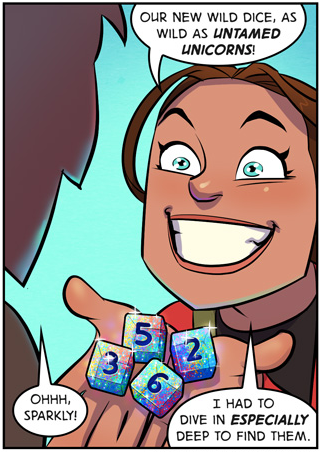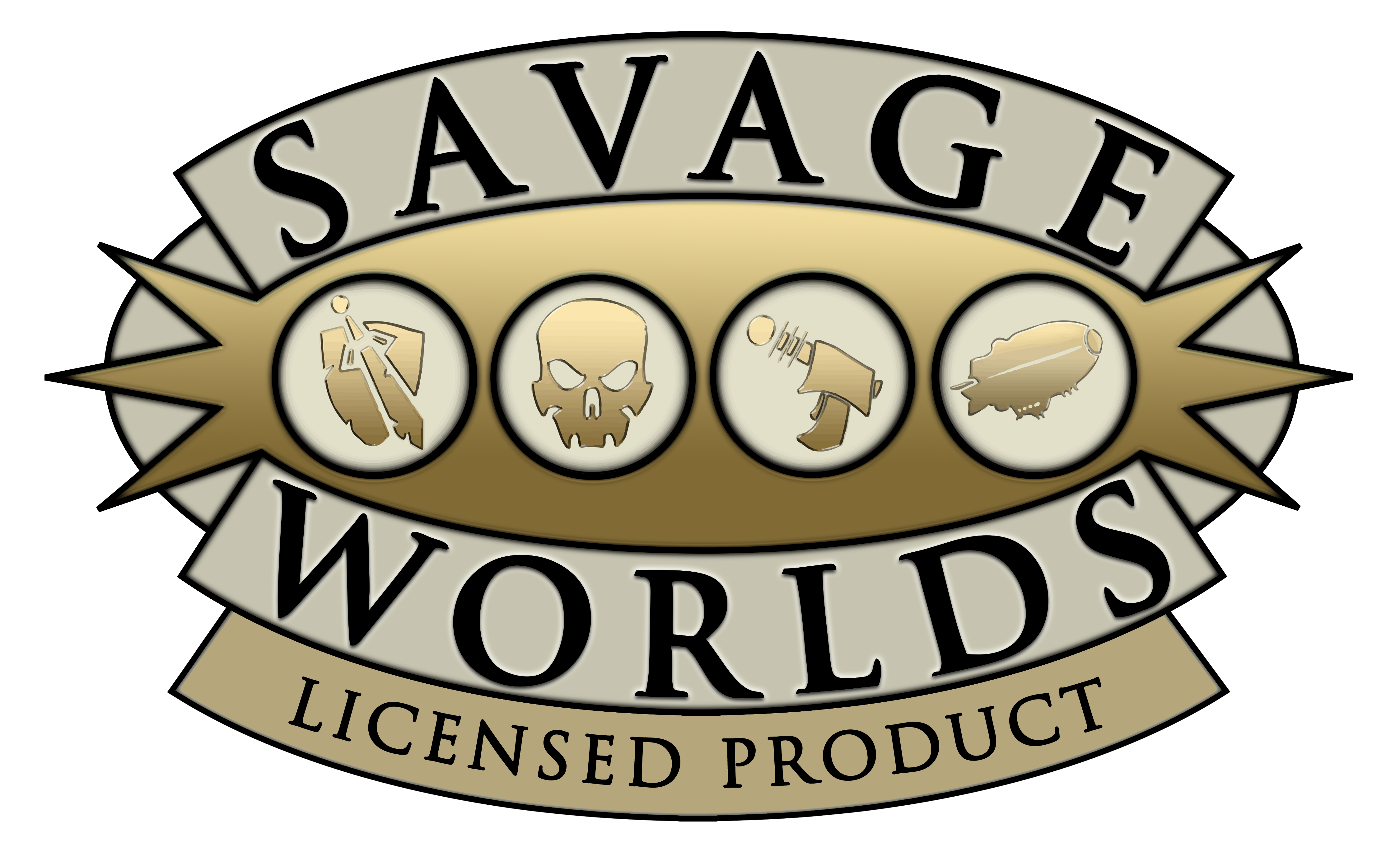Your weekly game is an ongoing social endeavour, and like any ongoing activity, it requires constant maintenance. There are a ton of different ways to help keep that maintenance, but in this article we’ll focus on a specific concept: the cycle of inspiration and investment.
The cycle cycles thus: You, player or GM, invest in the game; the other participants see this and get excited; this inspires the group to bring new life into the game and maintains engagement; from this engagement arises a desire to invest; and so on.
 Your investment might be quite small in scope – perhaps you just read a Wikipedia article on an interesting subject, and figured a way to put it into the next session. The resulting inspiration doesn’t have to be that huge of a deal, either – maybe the combat stunt you described based on that article made your GM think about an interesting aspect of the martial arts school your character originates from, which might come into play later on. When it does, maybe the GM gives you a list of cool names for the combat maneuvers (investment), and you find yourself using them in creative ways in and out of combat (inspiration).
Your investment might be quite small in scope – perhaps you just read a Wikipedia article on an interesting subject, and figured a way to put it into the next session. The resulting inspiration doesn’t have to be that huge of a deal, either – maybe the combat stunt you described based on that article made your GM think about an interesting aspect of the martial arts school your character originates from, which might come into play later on. When it does, maybe the GM gives you a list of cool names for the combat maneuvers (investment), and you find yourself using them in creative ways in and out of combat (inspiration).
Both investment and inspiration don’t have to be huge in order to have impact; In fact, consistency is a lot more important than scale, and it’s a better to have small investments again and again than one gigantic investment. The scale of investment should remain within manageable parameters, to allow the cycle to continue. The mentality of “I’ve given you all I’ve got, now you owe me some investment” is utterly disruptive to this cycle, so try not to invest too much, to the point where you feel you’re being owed something. In fact, you should invest just as much as you’re inspired to.
(As a caveat to that declaration, I’ll give an example of the time I ordered a pretty costly trophy for one player, created a short video game in RPG Maker for another one, sent an actual letter with a faked seal and stamp and everything to a third, and engaged in weeks-long epistolary-novel-like series of letters with the fourth – all of which was in celebration of the end of a huge storyline. It worked well for everyone involved, but then again, end-of-storyline events should be bombastic.)
Types of Investment
I define “Investment” as anything that shows you’ve put some time and effort into game-related stuff.
You can write down in your party’s WhatsApp group some suggestions for a new course of action next session, or even just a few thoughts about what happened last time. It shows you think about the game even when not playing.
You can choose specific chips, cookies or cut vegetables for the next session, based on the current major themes or concepts in the storyline.
You can find some better-designed character sheets, or maybe some good “cheat sheets” with all the main rules you’re using, and print them for everyone.
You can purchase some new dice/tokens/cards or the like, especially for the current game. Maybe order an especially made miniature of your character. Perhaps buy a useful splatbook.
You can ask for some responsibility in managing the game. Perhaps you’ll be the one who make sure everyone know when and where’s the next session. Maybe keep track of XP and HP for everyone. Or you talk with the GM and become the “DJ” for the group: during the week you ask the GM what background music would be appropriate for the next session, and take care of acquiring and playing it.
Use your everyday skills. If you know graphic design, make some special character sheets, with a logo for the series; if you know how to bake, make some cookies that look like the yummy elvish bread that was all the rage last session; if you can sing, find a song that encapsulate something that happened, and sing it; if you’re a video editor, create a short opening for the game (this can also be done relatively simply with a slideshow). If you love the countryside, find a cool castle or the like, and take your party there for an amazing weekend of gaming.
Write stuff
Finally, you can write stuff. This tends to be the go-to approach for many players who aim to invest in their games, but too many of them, I fear, end up delivering 13 pages of personal backstory for their character that no one will read, and quite probably, no one will remember. There are a lot of other possibilities here:
- 6-7 typical blessings you utter with your prayers.
- 10 snarky one-liners, so you can deliver one after every combat.
- Several dwarfish curse words, so you can infuse them into your speech when needed.
- A short paragraph of what happened to your character last night after she failed her Carousing roll; you can send it to everyone by mail, but consider simply reading it out loud at the start of the next session.
- Write a letter to one of the other characters.
- A description of the local habits in your character’s hometown, especially useful if you’ll be visiting it in the next session.
- Ask the GM about major features of the land, and dream up a local legend about them.
- You can take a “roll Persuasion” event that happened during the last session, and write down the actual things that were said by the characters. “I want to sing to him the Poem of the Majestic, to inspire him” – great, and it’ll probably just be a simple roll of some kind. But won’t it be cool if you begin the next session with an actual short poem, showing us what was happening in-game? And really, it doesn’t have to be long, or even very good.
If you need some encouragement (or simply a reminder!) to write stuff like this, consider using a weekly question. Here are a few examples.



